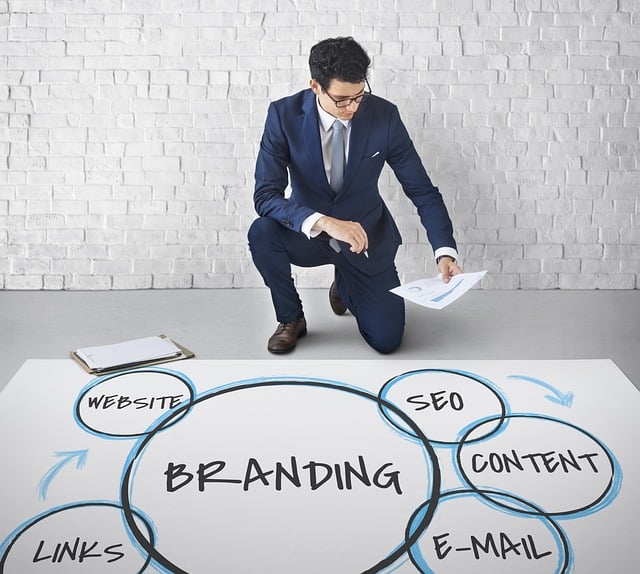Understanding the Importance of Building Relationships with Industry Experts
Every industry thrives on connections. Building relationships with industry experts is not just a tactic; it’s an essential component of professional networking. When you establish these connections, you pave the way for invaluable insights, collaboration opportunities, and even career advancements. Think of industry experts as bridges to broader horizons. Their experience and knowledge can transform your understanding of the field and provide you with perspectives you might not encounter elsewhere.
These relationships bring a wealth of information that extends beyond textbooks and formal training. While every professional journey is unique, mentorship from expert figures often provides the compass needed to navigate through challenges and seize opportunities. Moreover, engaging with experts fuels your growth. When you have access to seasoned professionals, their experiences can help you avoid common pitfalls. This real-world context enriches your knowledge, giving you a practical edge in your career.
Additionally, in a rapidly evolving market, keeping pace with changes can prove daunting. By building relationships with experts who are constantly at the forefront of industry trends, you gain access to real-time knowledge. Whether it’s new technologies, regulatory shifts, or emerging market strategies, insights from these individuals can equip you with the tools to adapt and thrive. Therefore, cultivating these connections should be an intentional part of your professional journey.
Identifying Industry Experts
The first step in building relationships with industry experts is identifying who those individuals are. Depending on your field, they could be thought leaders, researchers, or successful entrepreneurs. Start by doing your homework. Use online platforms like LinkedIn or industry-specific forums to locate professionals who resonate with your career interests. Look for those who share valuable insights, regularly contribute to discussions, or publish articles in reputable media outlets. This is not just about knowing their faces; it’s about understanding their contributions to the field.
Attending industry events, webinars, and conferences provides excellent opportunities to meet these experts in real-time. These venues often draw leaders in the industry, offering perfect settings for networking. Engage actively in discussions, ask questions, and show genuine interest in their work. Highlighting your eagerness to learn sets you apart in professional networking scenarios. You want to stand out—not merely as another face in the crowd, but as someone who values their expertise and insights.
Social media is also a powerful tool for identifying industry experts. Platforms like Twitter, LinkedIn, and even Instagram allow you to follow and engage with influential figures. Content sharing becomes a means to foster visibility and connection. When you comment on their posts, share their insights, or ask thought-provoking questions, you’re not just passively following; you’re engaging in a conversation. Over time, this engagement can morph into a relationship built on mutual interests and respect.
Approaching Industry Experts
Once you’ve identified industry experts, the next step involves how to approach them effectively. Remember, these are busy individuals. Your outreach should be concise, respectful, and genuinely interesting. Start by introducing yourself briefly, stating your interest in their work. Share what you admire about their career or a specific project they’ve undertaken. This personalized approach increases your chances of their attention; they will see you as an engaged professional rather than just another name in their inbox.
It’s important to express your intention clearly. Are you looking for mentorship, planning to seek advice, or curious about their specific insights? When you articulate your purpose, you make it easier for them to understand how they can assist you. However, be mindful not to ask for too much too soon. Asking for a coffee meeting or a quick call can work wonders, but lengthy commitments might overwhelm them. Starting small demonstrates your respect for their time.
Utilize a variety of communication methods to reach out. Email often feels more formal, while social media provides a more casual platform. Tailor your message depending on the medium you choose. For instance, through social media, you might comment on their post before sending a direct message. This way, they might recognize your name, making them more inclined to respond. Building rapport through various interactions lays a solid foundation for a fruitful relationship.
Nurturing the Relationship
After establishing contact, nurturing the relationship becomes paramount. It’s not sufficient to get a reply and then vanish. Regular communication is key. Follow up occasionally, whether through an informative article, a thank you note, or sharing insights relevant to their expertise. This not only shows that you’re engaged but reinforces your respect and admiration for their work. People appreciate when you think of them beyond just seeking help.
Involving yourself in their professional circles can also foster connections. Attend events where they speak or participate in discussions they lead. Introduce yourself to their circles as someone who values their insights. Over time, your face will become familiar, and that warm familiarity can lead to deeper conversations. Also, never underestimate the power of gratitude. A small gesture of thanks after they provide insights or assist you creates a lasting impression. People remember kindness and thoughtfulness.
Moreover, look for opportunities to reciprocate. Even if you might not have the same level of experience, you might bring fresh perspectives or help them with exposure in areas where they require support. Maybe you can promote their work on your platforms or connect them with someone in your network. Mutual benefits enrich professional networking. When relationships become reciprocal, they flourish more naturally.
Leveraging Your Network
As you build these relationships and expand your network, leverage it wisely. Recognizing the potential within your network involves knowing when and how to connect with others. Informal gatherings, both virtual and in-person, can serve as platforms to introduce industry experts to peers seeking their knowledge. Your role as a connector creates a seamless flow of information and strengthens your position within your professional community.
Furthermore, understanding your industry’s dynamics allows you to identify who your network can benefit. If your circle lacks expertise in a certain field, use your connections to fill those gaps. Propose a panel or an online discussion featuring industry leaders, allowing them to share their thoughts while also providing your peers with access to invaluable insights. Here, you create a community of learning and support that can resonate throughout your network, establishing yourself as a thought leader in the process.
Additionally, it’s crucial to extract insights from these relationships continually. This doesn’t mean constantly asking for help but rather creating a learning loop. What trends are they observing? What challenges do they foresee? By asking these questions, you’re not just engaging in casual conversation; you are enriching your understanding and ensuring your skills and knowledge remain relevant in a fast-paced industry.
Maintaining Professionalism and Respect
Each interaction with industry experts must embody professionalism and respect. Remember that, while your ultimate goal may involve seeking insights or assistance, the essence of any relationship lies in mutual respect. Be mindful of boundaries; not everyone may be open to frequent communications. Recognizing when to step back is just as crucial as knowing when to engage. Respecting their time not only fosters goodwill but also encourages them to be more open to future interactions.
Continually reflect on your motivations as well. Are you aiming for a genuine connection, or do you simply want to extract value? Genuine relationships evolve from authentic interest. This means learning not just from them but about them. Personalize your conversations based on their interests, and enrich their experience. Listen actively, celebrate their successes, and engage deeply. A relationship grounded in trust and respect among peers acts as a foundation for deeper insights and guidance.
Finally, consider the long game. A relationship with an industry expert today might not yield immediate benefits. Sometimes, the returns of relationship-building manifest over time. So, continue nurturing and building these bonds even when they do not seem immediately fruitful. Patience is a virtue in the realm of professional networking. Those who invest time and effort reap the rewards in the long run, often in unexpected and delightful ways.
Frequently Asked Questions (FAQs)
1. What are industry experts?
Industry experts are professionals recognized for their extensive knowledge, skills, and experience in a specific field. They often contribute to their industry through research, publications, speaking engagements, or by playing pivotal roles in significant projects.
2. Why is building relationships with industry experts important?
Developing relationships with industry experts provides access to knowledge, insights on trends, guidance in navigating challenges, and opportunities for collaboration. These connections often enhance career development and open doors to new possibilities.
3. How can I identify industry experts in my field?
You can identify industry experts through professional networks, LinkedIn, conferences, and webinars. Research their contributions, follow their work, and observe their engagement in industry dialogues to find the right individuals.
4. What is the best way to approach an industry expert for networking?
Approaching industry experts should be done with respect and specificity. Introduce yourself succinctly, state what you admire about their work, and clearly express your intention, whether it’s seeking advice or mentorship. Personalization makes your communication stand out.
5. How do I maintain and nurture relationships with industry experts?
Maintain relationships by staying in touch, expressing gratitude for their assistance, and actively engaging in discussions related to their interests. Look for opportunities to give back and offer support, creating a mutually beneficial relationship.



